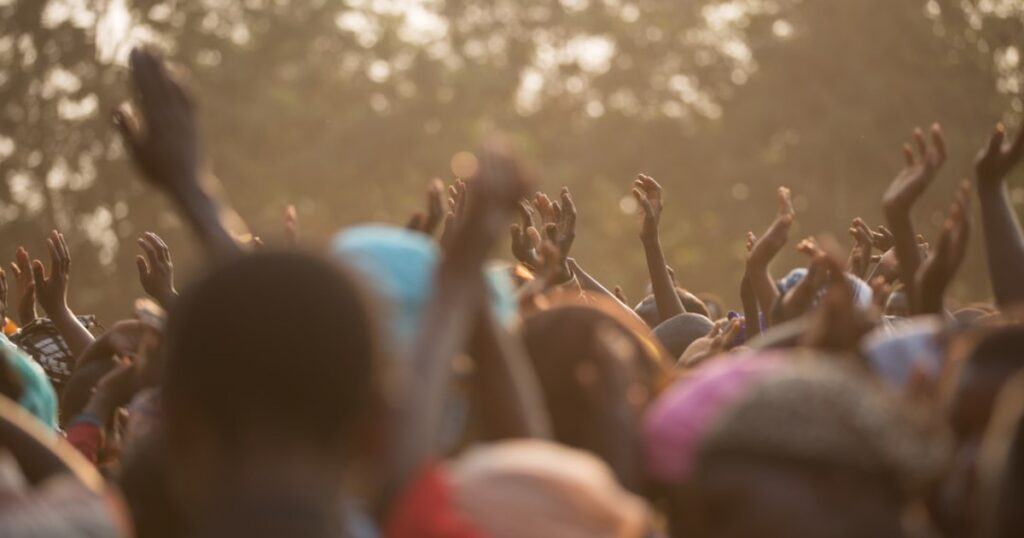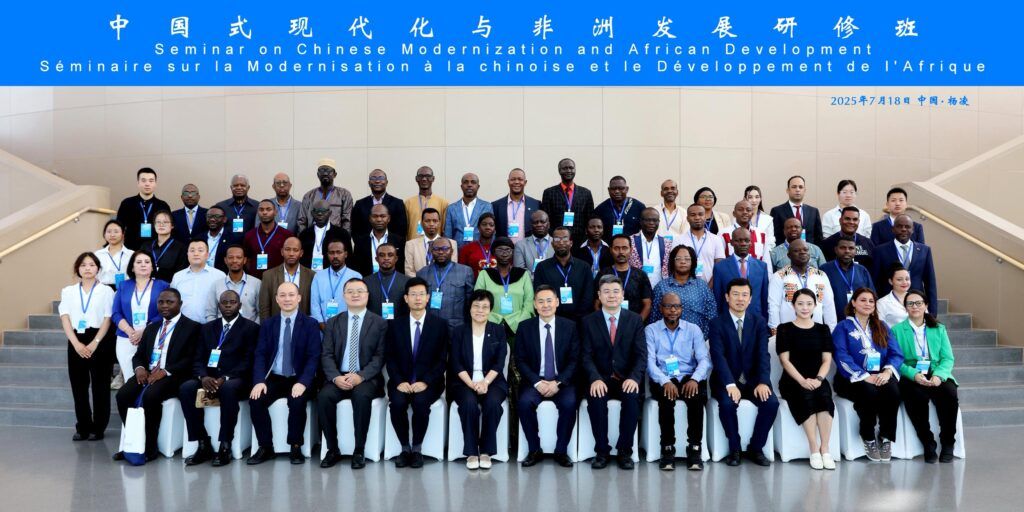When I received the final confirmation from the Chinese Embassy in Juba, I paused for a moment—not because I was surprised, but because something in me knew this was the beginning of a new chapter. From Thursday, 17th July to Thursday, 24th July 2025, I will be attending an eight-day seminar in Shaanxi, China, titled “Seminar on Chinese Modernization and African Development.” It is part of the grander vision embedded within the Forum on China-Africa Cooperation (FOCAC)—a vision that, if taken seriously, might be the diplomatic bridge the Global South has been dreaming about.
Let me be honest: I’ve never been to China. In fact, this is my first international trip since birth. Yet here I am, en route to one of the world’s oldest civilizations, not as a tourist, not as a diplomat, but as a writer—a storyteller—armed with a pen and a message.
FROM THE PRESSROOM TO THE PLANE
My ticket to this global gathering was not printed on expensive paper or signed with golden ink. It was written, day by day, through my consistent contribution to The DAWN Daily Newspaper—South Sudan’s voice of resilience and civic thought.
If you’ve been reading The DAWN lately, especially since April 2025, you’ve likely come across my series on political journalism. I’ve written on governance, youth empowerment, national identity, federalism, agnosticism, artificial intelligence, and even moringa seeds as a local health solution. I’ve used journalism as both a lens and a mirror—reflecting our broken systems while offering solutions drawn from lived experience.
What many don’t know is that my journey with The DAWN began not in the editorial room, but in the classifieds section. Back in 2016, I used to advertise my affiliate marketing programs in those tiny rectangles at the back of the paper. Who would have thought that eight years later, I’d be attending an international seminar because of that same publication?
I owe special thanks to The DAWN’s Editor-in-Chief, Emmanuel Monychol Akop, and his visionary team of editors and designers. They have not just published my pieces—they’ve amplified them. In a country where free press is a fragile treasure, their courage and commitment to truth-telling cannot be overstated.
FROM PEN TO PASSPORT: WRITING MY WAY TO THE WORLD
Renewing my passport was just a formality. The real document—the one that got me here—is invisible. It’s a body of work that spans 100 books across 10 interconnected series, written and self-published between 2012 and 2023. These series span topics such as theology, entrepreneurship, self-publishing, nationalism, poetry, academic writing, computer science, and more. But something changed in April 2025: the books took a back seat. The newspaper columns took center stage.
I realized that books can sit on shelves for years. Articles move with urgency. They speak to today’s fire, not tomorrow’s dream. South Sudan doesn’t just need poets and professors—it needs prophets. And by that, I don’t mean fortune-tellers, but truth-tellers.
This calling to political journalism isn’t glamorous. Sometimes, it means confronting uncomfortable realities: tribalism disguised as patriotism, corruption dressed in cultural attire, or the hollow slogans of “unity” that echo across divided lands. But here’s the funny part—writing about politics in South Sudan is a bit like being a stand-up comedian in a civil war zone. You know people will listen, but you’re never quite sure if they’ll laugh, cry, or chase you with a stick.
THE SEMINAR: WHAT I HOPE TO LEARN
The seminar I’m attending will focus on Chinese modernization and its relevance to African development. While I may be flying out of Juba as a student, I plan to return with lessons that matter.
I want to understand:
How China lifted 800 million people out of poverty. Can South Sudan adapt any of these models without losing its identity?
How infrastructure and digital economy were leveraged to create long-term growth. Can we do the same in a place where some villages still don’t have clean drinking water?
How Chinese values like discipline, long-term planning, and collective responsibility are instilled through education and governance. And whether they’re applicable in our context, where the average youth is more familiar with Facebook than federalism.
I go there not just to learn how China became modern, but to question what modernization should look like in Africa. Should we clone their model? Or should we co-create one rooted in African soil but guided by global wisdom?
RESILIENCE: MY STORY, OUR STORY
Why me? Why was I selected to represent our country at such a forum?
Let me say it with humility and clarity: because I never stopped writing.
I wrote during blackouts. I wrote while bombs fell. I wrote when internet bundles were expensive and motivation was low. I wrote because writing was the only thing that made sense in a world that often didn’t.
My life has been shaped by resilience—not the poetic kind, but the kind where you write your next chapter while ducking the chaos of the last one. In my writings, I speak of hope, purpose, faith, and the potential of the human spirit. These are not abstract concepts. They are survival tools.
That’s the message I plan to take with me. I go to learn. But next time—yes, next time—I will go to teach. To speak. To testify. Not about perfection, but about progress.
A MESSAGE TO SOUTH SUDAN’S YOUTH
To every young person reading this in Juba, Malakal, Yambio, Wau, Bor, or anywhere else: you don’t need a visa to dream. You don’t need a seminar to start your journey. You only need purpose. If your goal is to change the world, you don’t start with politics. You start with your daily contribution.
Start where you are. Speak the truth. Improve your skills. Be consistent. Be curious. And for heaven’s sake, don’t wait for permission to make a difference.
I didn’t attend elite schools. I didn’t have wealthy sponsors. What I had was a voice. And I used it. I still do.
AFRICA MUST TELL HER OWN STORY
This seminar is part of FOCAC, a growing partnership between China and Africa. While skeptics raise eyebrows about neo-colonialism and geopolitical motives, I choose to see the opportunity. If Africa enters these dialogues with clarity, courage, and competence, we won’t be swallowed. We’ll negotiate. Collaborate. Innovate.
But that only happens when we tell our own story. Not just the story of problems, but the story of possibilities.
I believe in African wisdom. I believe in storytelling as a tool of peace and reconciliation. I believe that the world doesn’t need another superpower—it needs a super-community, a coalition of nations built not on conquest but on compassion and cooperation.
WHAT COMES NEXT?
When I return to Juba on the 25th of July 2025, I’ll do more than unpack a suitcase. I’ll unpack new insights. I’ll share what I’ve learned—not in lectures, but in columns, blogs, interviews, and maybe a new book. (I’ve written 100, so what’s 101?)
This is just the beginning. My eyes are on global platforms—TED Talks, United Nations summits, university panels, and cultural festivals. I want to speak to the world, not because I know everything, but because I’ve lived through something—and that something is worth sharing.
STAY TUNED
While in China, I’ll do my best to update you all on what’s happening. Internet permitting, you’ll see photos, reflections, and maybe even a few videos. But if I disappear for a day or two, just know I’m not lost—I’m learning.
And when I return, we continue our shared mission: to tell the truth, to pursue peace, and to raise South Sudan’s voice on the global stage.
For now, keep writing. Keep hoping. Keep working. The journey doesn’t start in Shaanxi. It starts in your spirit.
I have a message.
I have a dream.
And I’m just getting started.
AUTHOR BIO
John Monyjok Maluth is a South Sudanese journalist, author of 100 books, and a contributor to The DAWN Newspaper. He writes on political, social, and cultural issues with a focus on peace, purpose, and progress.
John Monyjok Maluth
Author | Coach | Teacher
- W: www.johnshalom.com
- E: info@johnshalom.com
- P: +211 927 145 394 (WhatsApp)
- Juba, South Sudan


